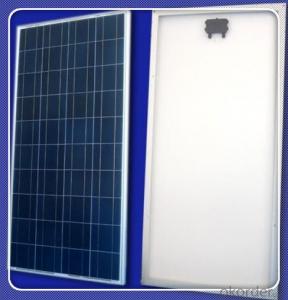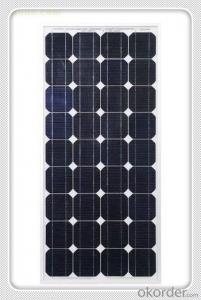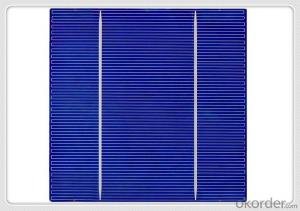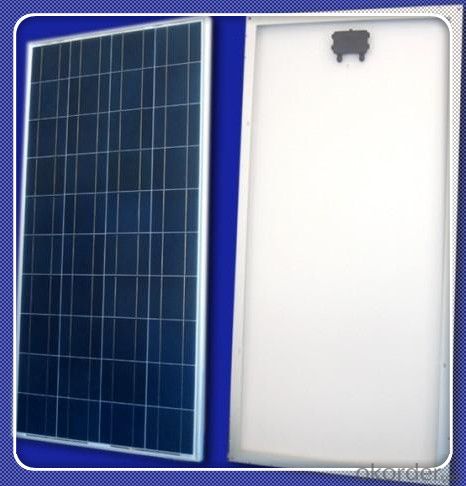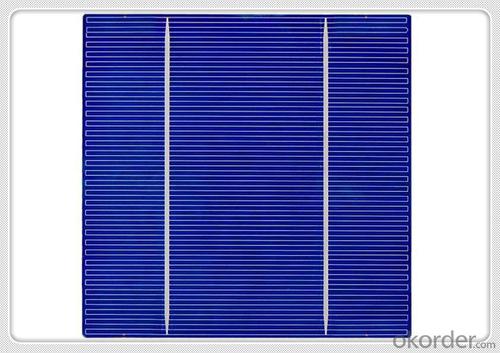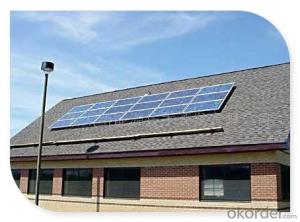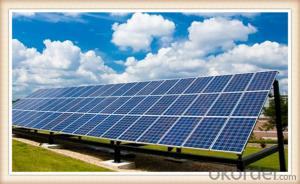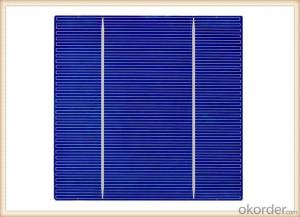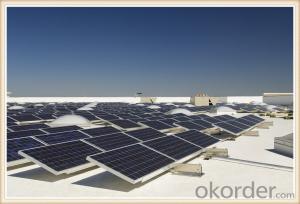Van Life Solar Panels:90w Efficiency Chinese Solar Panels 5-200w for Sale
- Loading Port:
- China main port
- Payment Terms:
- TT OR LC
- Min Order Qty:
- 10000 watt
- Supply Capability:
- 100000 watt/month
OKorder Service Pledge
OKorder Financial Service
You Might Also Like
Specification
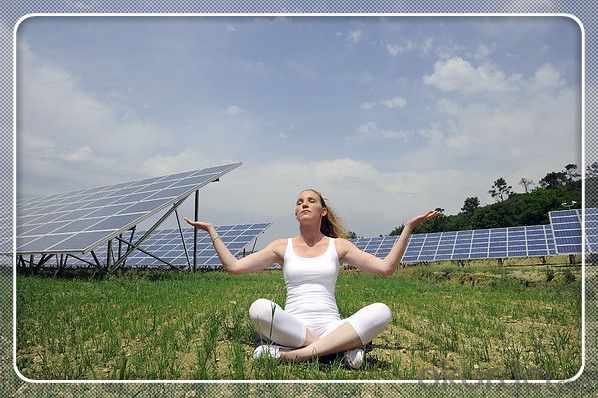
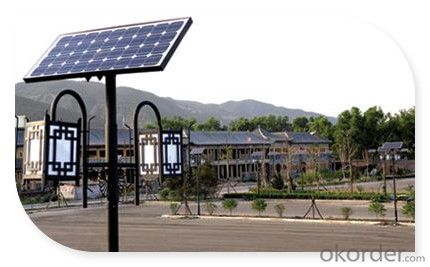
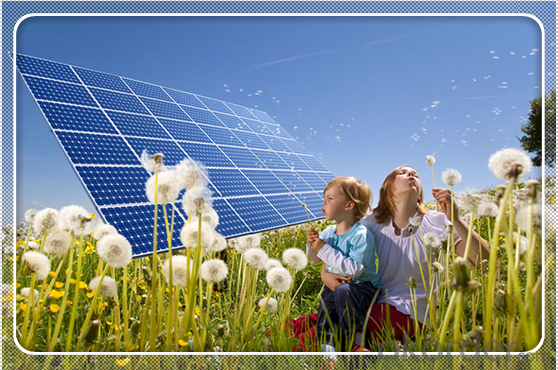
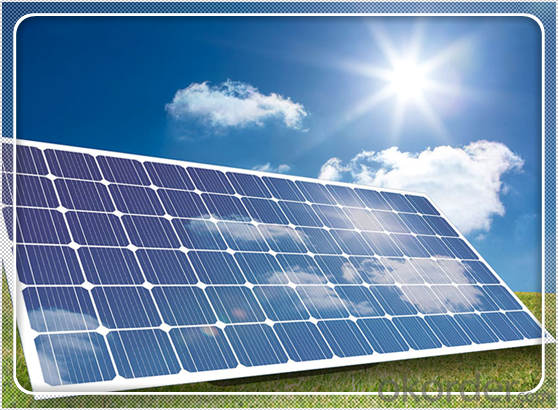
Solar Module Introduction
Solar Module is the core part of solar PV power systems, also is the highest value part of it. The function of Solar Module is to convert the sun's radiation to electrical energy, or transfer it to battery and store in it, or to drive the load running.
The Product has been widely used in space and ground, it mainly used for power generation systems, charging systems, road lighting and traffic signs areas. It could offer a wide range of power and voltage, and with high conversion efficiency, and long service life.
Solar modules use light energy (photons) from the sun to generate electricity through the photovoltaic effect. The majority of modules use wafer-based crystalline silicon cells or thin-film cells based on cadmium telluride or silicon. The structural (load carrying) member of a module can either be the top layer or the back layer. Cells must also be protected from mechanical damage and moisture. Most solar modules are rigid, but semi-flexible ones are available, based on thin-film cells. These early solar modules were first used in space in 1958.
Electrical connections are made in series to achieve a desired output voltage and/or in parallel to provide a desired current capability. The conducting wires that take the current off the modules may contain silver, copper or other non-magnetic conductive transition metals. The cells must be connected electrically to one another and to the rest of the system. Externally, popular terrestrial usage photovoltaic modules use MC3 (older) or MC4 connectors to facilitate easy weatherproof connections to the rest of the system.
Secification
Model Type | |
Peak Power-Pmax(W) | 5-200W |
Open Circuit Voltage-Voc(V) | 44.2 |
Maximum Power Voltage-Vmp(V) | 36 |
Short Circuit Current-Isc(A) | 5.4 |
Maximum Power Current-Imp(A) | 5 |
Maximum System Voltage | 1000V DC |
Maximum Series Fuse Rating | 10A |
Power Tolerance | -1~+3% |
Temperature Coefficients of Pmax | -0.45%/℃ |
Temperature Coefficients of Voc | -0.348%/℃ |
Temperature Coefficients of Isc | 0.031%/℃ |
Nominal Operating Cell Temperature | 44.5±2℃ |
Standard Testing Condition(STC) | Irradiance:1000W/m²;Temperature:25℃;AM=1.5 |
Qualification Test Parameters | |
Operating Temperature | -40℃~+85℃ |
Storage Temperature | -40℃~+85℃ |
Pressure Bearing | ≥5400Pascal/m² |
Wind Bearing | ≥5400Pascal/m² |
Mechanical Characteristics | |
Cell Size | Mono 125*125mm±0.5 |
No.of Cells | 72pcs(6*12) |
Dimension | 1580*808*40mm |
Weight | 15.5Kg |
Glass | 3.2mm High Transmission,Low Iron |
Frame | Anodized Aluminum Alloy |
Junction Box | IP65Rated |
Internal Diodes | 3 Bypass Diodes |
Cable | 1*4.0mm² Length 900mm |
Images
Packing & Shipping:
We have rich experience on how to pack the panels to make sure the safety on shipment when it arrives at the destination.
The normal size is packed by 25pcs/ carton / pallet. Paper carton for FCL shipping and wood carton for LCL shipping.
Warranty:
For c-Si panel: 25years output warranty for no less than 80% of performance, 10 years output warranty for no less than 90% of performance. Free from material and workmanship defects within 5 years.
For a-Si panel: 20 years output warranty for no less than 80% of performance, 10 years output warranty for no less than 90% of performance. Free from material and workmanship defects within 2 years.
FAQ:
(1)What price for each watt?
It depends on the quantity, delivery date and payment terms.
(2)What is your size for each module? Can you tell me the Parameter of your module?
We have different series of panels in different output, both c-Si and a-Si. Please take the specification sheet for your reference.
(3)Can you provide the peripheral products of the solar panels, such as the battery, controller, and inverter? If so, can you tell me how do they match each other?
Actually we are only manufacturer of solar panels, but we could try to source them for you in China if you need. We could provide you an optimal system design to instruct you how to install.
(4)Do you have the CE, TUV, UL Certification?
We’ve already passed all the tests, and any certificate is available.
(5)Have you ever sold your products to companies in my country?
Of course, we have customers in all general PV markets, but I think we should expand our market share along with the market growth.
(6)When did your company set up? You are a new company, how can I believe your quality?
We entered into Solar PV industry in 2005, now we have several plants in manufacturing of a-Si and c-Si panels, and our capacity is 220MW per year. Till now we have already passed all the tests by authorized laboratories, e.g. TUV, VDE, UL.
(7)Can you help us install the module if we cooperate with you?
We haven’t entered into installation sector, but we have the plan in near future.
(8) How do you pack your products?
We have rich experience on how to pack the panels to make sure the safety on shipment when it arrives at the destination.
(9) Can you do OEM for us?
Yes, we can.
(10)Can we visit your factory?
Surely, I will arrange the trip basing on your business schedule.
- Q: Can solar panels be installed on farmlands or agricultural fields?
- Yes, solar panels can be installed on farmlands or agricultural fields. In fact, many farmers and landowners are increasingly using their land for solar energy production as it can provide additional income and sustainable farming practices. Solar panels can be mounted on ground-mounted systems or integrated into structures like barns or sheds without interfering with farming operations. Additionally, solar installations can offer benefits such as reduced energy costs and promoting environmental sustainability in the agriculture sector.
- Q: how efficient are flexible solar panels?
- I don't have a number, but in general, no one uses a flexible panel unless they are compelled to. The efficiency is lower, and my experience is that they don't last. I had one a few years ago, and it lasted less than 2 years. My rigid panels came with a 25-year performance warranty, and are still working great after 7 years.
- Q: i dont wanna buy a solar panel becuase its too exspensive, i dont want use technical stuff i want to use every day materiels, but i need to know asap plzzzz.
- well... I'm not sure how you can make a solar panel that you can store electricity off of. But a simple solar panel is... Take a pane of class a bunch of pop cans and a fan... color the bottoms of the pop cans black and attach them to a board of some sort (black side up) put the pane of glass over the cans (with about 5 inches of space between) and put the fan blowing away from the cans you can set this in a window that gets lots of sun and it will use the solar energy to heat your house (its pretty efficient and warm)
- Q: How Much energy does Solar Panel Produce,and How long can Solar Panels go without maintenance.
- Solar panels come in many kinds, using a variety of technologies and sizes, but the most common is still the crystalline silicon type. The power produced is variable, but the better ones you can buy approach 20% efficiency, and the peak energy from the sun is 200W/m^2 (Watts per square meter). This only occurs when the panel is lined up with the sun on a clear day with the sun high in the sky. The efficiency is also affected by how the electrical energy is taken from the panel, and the temperature of the panel. In the full sun the temperature approaches 60C, so the voltage drops. The links below provide a lot of information about such matters. A BP panel 50mm x 674mm gives a peak power of 20W. This is .07 square meters. As you can see this is very close to 20%. (The third link). However this is less in practice because the sun may not be full sun and may not be perpendicular to the panel. The output drops as the cosine of the angle to the sun, more or less. Even with peak sun this would produce only about 00W charging a 2V battery directly, unless an electronic Maximum Power Point Tracking (MPPT) charge control is used.
- Q: Can solar panels be installed on a condominium or apartment building?
- Yes, solar panels can be installed on a condominium or apartment building. However, it may require certain considerations such as the availability of suitable roof space, permissions from the building owners or management, and potential impact on other residents. Additionally, installation and maintenance costs may need to be shared among tenants or considered in the building's budget.
- Q: I recently bought a house with very old solar panels (about 25 years old) that don't appear to work properly. They are supposed to heat the hot water heater but they don't always work, and recently have staretd leaking. So, I have had them turned off and now we're just using electricity to heat the hot water. My question is, is there any tax credit money (stimulus or otherwise) available for people to (a) repair old solar panels or (b) replace them with new ones? How does the credit work?
- If you buy NEW solar panels, there is a credit. see the 040 icon at www.okorder
- Q: How can I know the right type of solar panel to choose for my small village house in Africa?
- The power output of a solar panel uses a formula to determine kilowatts produced per hour per square meter per day. This calculation is important because, if you plan to install a solar power system for your home, you will want to know how many solar panels will be needed. To calculate solar power requirements correctly, you need to gather the data that is needed for the calculation. First you have to find the average amount of solar radiation available for your area. You can use a solar radiation chart. This can range from a 4 to a 7 depending on the area you live in. Write the number down on a piece of paper and indicate it with the letters RA. Next is determine the amount of electricity that you use daily. Add the kilowatt-hours used per month from your utility bill. Multiply this number by ,000 to get the watt hours in a month. Divide the total by 30 for the amount of electricity you use daily. Write this number down and indicate it with the letters DE. Determine the percentage of your home that you want to power with the solar power system. Write this number down and indicate it with the letter P. Determine the system inefficiency factor for the solar power system. You should be able to find this on the brochure for the system or from the manufacturer's web site. Write this number down and indicate it by the letter I. Determine the power or yield that is required for your home. Use the equation P = I x (DE x P) / RA to find the power requirements in kWh. Divide the number from Step 5 by the peak wattage for a single solar panel to determine the number of panels you will need for your home. Goodluck! :)
- Q: Do I just run the wire from the panel into the charge controller and then to the battery AND can I simultaneously draw energy from the battery while it is being charged by the panel?Is it as simple as hooking it up like that?
- The solar panel wires go to the charge controller. The charge controller wires go to the battery. You can also run wires from battery to a load ONLY IF it is DC load. If any AC loads, then you need a inverter to change dc to ac.
- Q: What is the role of inverters in solar panel systems?
- The role of inverters in solar panel systems is to convert the direct current (DC) electricity produced by the solar panels into alternating current (AC) electricity, which is the type of electricity used in homes and businesses. Inverters also ensure that the AC electricity produced is synchronized with the grid, allowing for efficient utilization or storage of energy, and enabling solar panel systems to feed excess electricity back into the grid.
- Q: Can solar panels be used for powering wireless charging stations?
- Yes, solar panels can be used to power wireless charging stations. Solar panels convert sunlight into electricity, which can be utilized to charge devices wirelessly through a charging station. This makes it a sustainable and environmentally friendly option for providing power to wireless charging stations.
Send your message to us
Van Life Solar Panels:90w Efficiency Chinese Solar Panels 5-200w for Sale
- Loading Port:
- China main port
- Payment Terms:
- TT OR LC
- Min Order Qty:
- 10000 watt
- Supply Capability:
- 100000 watt/month
OKorder Service Pledge
OKorder Financial Service
Similar products
Hot products
Hot Searches
Related keywords
